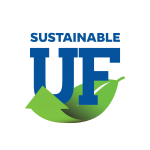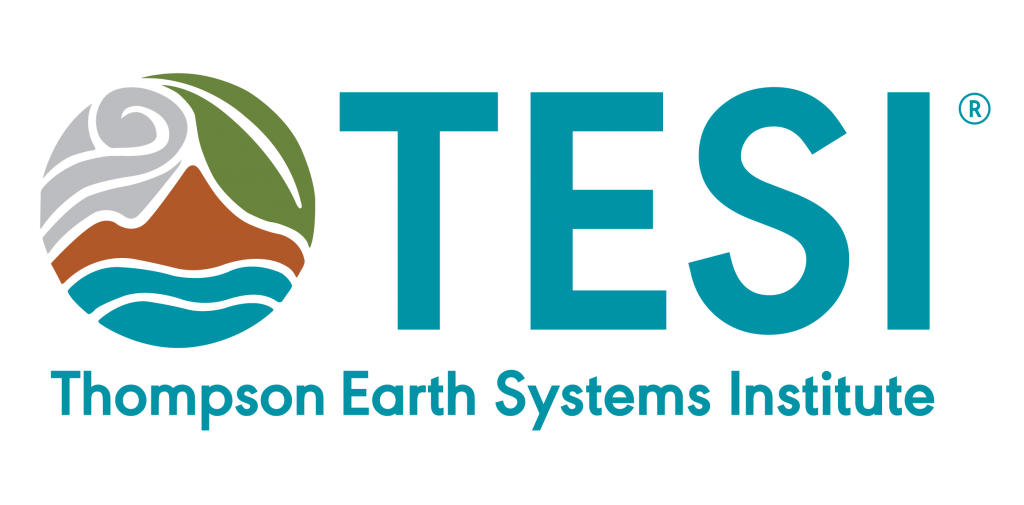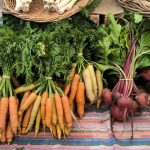

JANUARY 2021
Written by UF Office of Sustainability
In collaboration with the UF Thompson Earth Systems Institute.
With rising concerns surrounding Earth’s changing climate, many Gators, and fellow Floridians, are seeking to make 2021 better than 2020 by reducing their carbon footprint on the environment through simple day-to-day actions. For the January 2021 Action of the Month, the UF Office of Sustainability shares the following steps to reduce your carbon footprint and contribute to a more sustainable and resilient future.
What is a carbon footprint?
Many of our daily activities – such as driving a car, using electricity, purchasing food or disposing of waste have associated greenhouse emissions and together these make up a carbon footprint. These emissions can be created through direct use (such as gas in your car), the production of items (such as energy used in a factory), or even the transportation of items (such as shipping food to your local grocery). For a more visual explanation of a carbon footprint, check out this video below:
How to Assess Your Carbon Footprint:
The first step to reducing your carbon footprint is understanding what it looks like now.
We suggest connecting with a local carbon offsetting non–profit organization in your area, if possible. If you are in Gainesville, UF has frequently collaborated with the carbon-offsetting non-profit We Are Neutral. Organizations like this often offer a carbon footprint calculator tool and are able to give you a more accurate understanding of your carbon footprint within your local context.
If you don’t have access to a local carbon offsetting organization, you can estimate what your footprint looks like using one of these free online calculators:
- Nature Conservancy Carbon Footprint Calculator
- Environmental Protection Agency Household Carbon Footprint Calculator
Ways to Reduce Your Carbon Footprint:
Now that you’ve figured out your baseline, there are many simple actions that you can take to reduce negative impact on the environment. Many factors contribute to a carbon footprint, but we frequently find that the 3 areas where we can have the most impact are home energy use, transportation, and food.
Home Energy:

- Work with a local weatherization group (often found through your utility provider) to make sure your home is as energy efficient as possible. Tools like weather-stripping and pipe insulation can reduce your home’s energy needs and can increase savings on utility bills.
- Make the switch to energy efficient technology like LED lightbulbs, Energy Star rated appliances, or Smart Power Strips. These small changes can add up to big impact!
- UF/Gainesville resources: If you’re in Gainesville, the Community Weatherization Coalition (CWC) can help you find ways to reduce your home’s energy use.
Transportation

- Explore using alternative forms of transportation. These may include driving electric vehicles, cycling, walking, taking public transportation, or other low-emission modes of transportation.
- UF/Gainesville Resources: Learn more about the RTS bus system, the Neutral UF Coalition or the Gator Gears rental program to find alternative transportation options.
Food
When we don’t shop locally, oftentimes our food has to travel long distances by truck, plane or ship to get to us.

- Integrate more local food into your diet by exploring options like farmers markets, Community Supported Agriculture (CSA), or other local farming efforts.
- Discover whether or not you have a green thumb and try your hand at a garden. Growing your own food is a great way to reduce your carbon emissions.
- Pay attention to food waste and explore ways to reduce waste or compost locally.
- UF/Gainesville Resources: The UF Master Gardener Volunteer program provides many educational resources for Florida residents looking to improve their horticultural skills. Those in Gainesville can also check out Working Food and UF Field & Fork which both support community-based educational programs on sustainable agriculture.
If you’d like to learn more about sustainability at UF, follow @SustainableUF on Instagram or Facebook! To see previous Action of the Month stories from the Thompson Earth Systems Institute, visit their Earth to Florida Newsletter and sign up to receive future issues.
